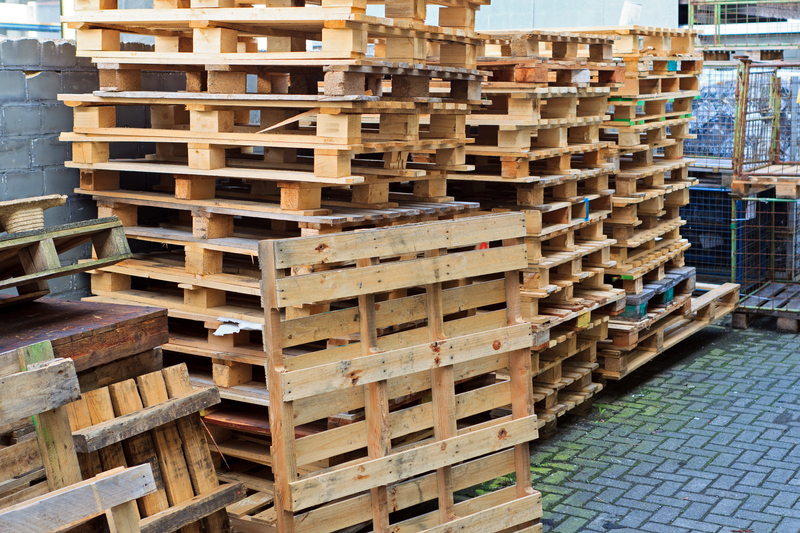Smart Strategies to Save Money on Your Bulky Waste Disposal
Dealing with bulky waste can be both a hassle and a considerable drain on your wallet if you don't know the right approaches. From old furniture to appliances and garden debris, finding cost-effective and eco-friendly solutions is essential for both your budget and the environment. If you're eager to minimize costs and maximize efficiency, this comprehensive guide will walk you through smart strategies to save money on your bulky waste disposal. Discover money-saving tips, explore environmentally conscious options, and learn how to transform your waste disposal process.
Understanding Bulky Waste: What Qualifies as Bulky Items?
Before diving into money-saving tips for bulky waste disposal, it's important to identify exactly what counts as "bulky waste." Not only does this help you plan your disposal method, but it can also affect the cost and process involved.
- Furniture: Sofas, armchairs, tables, wardrobes, beds, and mattresses.
- Large electronics: Refrigerators, washing machines, dryers, ovens, TVs, and microwaves.
- Garden waste: Branches, sheds, fencing, large lawn equipment.
- Renovation materials such as carpets, bathtubs, sinks, and doors.
- Other large items: Bicycles, children's play structures, and carpets.
Many regular curbside waste services cannot accommodate these items due to their size, weight, or composition. As a result, bulky waste collection often comes with additional fees. But with the right strategies, you can avoid or significantly reduce these costs.

1. Assess Before You Dispose: Reduce, Reuse, Recycle
Save Money with Responsible Bulky Waste Management
The most cost-effective bulky waste disposal strategy starts with a simple question: Do you really need to dispose of everything? An honest assessment can reveal opportunities for savings.
- Reduce: Avoid unnecessary purchases in the first place. Opt for durable goods and repairable items to minimize bulky trash down the line.
- Reuse: Consider donating usable furniture or appliances to charities, shelters, or secondhand stores.
- Recycle: Many municipalities offer free or discounted recycling programs for certain electronic or metal items.
By following the reduce, reuse, recycle principle, you dramatically lower the total volume of waste you need to pay to dispose of--and may even help others in the process!
2. Research Local Council Services and Free Collection Options
Take Advantage of Government and Community Supports
Many local authorities provide free or low-cost bulky waste collection services, especially for certain demographics (such as seniors or low-income households). Check your local government website for:
- Bulky waste pickup schedules: Some areas have fixed bulky item collection days each year.
- Recycling centers: Drop-off points where you can bring large items at reduced or no charge.
- Special initiatives: Events or grants supporting large item recycling or e-waste drives.
If you're flexible about timing, scheduling your disposal around these services can mean significant savings. Also, watch for neighborhood clean-up days, when extra waste is collected en masse, sometimes for free.
3. Pool Resources: Collaborate with Neighbors
Cut Costs Through Bulk Collection and Shared Services
Pooling resources with your neighbors is an innovative strategy to save on bulky waste disposal. Coordinating a group collection or hiring a shared skip/bin can:
- Reduce per-household costs by splitting disposal fees.
- Minimize trips for collection vehicles, lowering the environmental impact.
- Encourage a stronger sense of community and cooperation.
Pro Tip: You can often negotiate better rates with disposal companies for larger, consolidated loads--don't be afraid to ask for group discounts!
4. Consider Selling or Gifting Usable Items
Turn Bulky Waste into Extra Cash
Not everything you consider waste is worthless to someone else. Instead of paying for disposal, try selling or giving away usable items.
Popular platforms include:
- Facebook Marketplace and Craigslist
- Freecycle and local "Buy Nothing" groups
- Specialized apps for furniture or electronics resale
Not only does this offset bulk waste disposal costs, but you might even make money. Even broken appliances can often be sold for parts or scrap value!
5. Optimize Your Bulky Waste for Transport
Disassembly and Efficient Packing Save Money
If you need to transport large items yourself, disassemble bulky waste whenever possible. Larger pieces may incur higher hauling fees or require special vehicles.
- Break down furniture into pieces for easy loading and stacking.
- Remove doors or shelves from appliances and cabinets.
- Compact materials to reduce space and maximize each trip or pickup.
Transporting your own bulky waste to landfills or recycling centers--especially if items have been minimized--can be markedly cheaper than hiring a private hauler.
6. Compare Private Collection Services
Shop Around for the Best Bulky Waste Removal Deals
If you must hire a professional service for bulky waste removal, avoid settling for the first quote you receive. Take these steps:
- Request quotes from at least 3-5 local companies.
- Ask about weight, volume, and item-based pricing structures.
- Check if there are discounts during off-peak times or for certain types of waste (like all-metal loads).
- Read reviews and check for hidden fees, such as mileage or labor charges.
Some companies offer lower rates for grouped pickups or collect certain items for free if they can reclaim parts. Don't hesitate to negotiate.
7. Rent a Skip Only If Necessary--and Share the Cost
Maximize Value from Skip or Dumpster Hire
Skips (also called dumpsters or roll-offs) are a go-to solution for significant bulky waste, but they can be expensive. If your job justifies it, consider:
- Sharing a skip with neighbors or friends tackling similar projects.
- Choosing the correct size skip for your waste (overestimating wastes money; underestimating leads to overage fines).
- Loading smartly--breaking down items and filling every available nook to maximize space.
- Verifying that prohibited items (e.g., certain electronics or hazardous materials) aren't included, as this can incur additional charges.
8. DIY Drop-Off at Recycling or Waste Facilities
Save on Professional Pickup Costs
If you have access to a suitable vehicle or trailer, consider dropping off bulky waste at your local landfill or recycling depot yourself. Benefits include:
- Avoiding collection fees
- Often only paying per load, by item, or for certain materials
- Taking advantage of special free drop-off days for specific items
Be sure to check facility rules and opening hours. Some accept only certain items, may require proof of residency, or have limits on free loads per household.
9. Upcycle or Repurpose Your Bulky Waste
Creative Alternatives to Throwing Items Away
Not only is upcycling a green choice, but it can also eliminate disposal costs entirely. Some innovative ideas include:
- Turning old doors into headboards or tables
- Reusing pallets as DIY garden furniture
- Converting old bathtubs into planters or ponds
- Salvaging hardware, glass, or metal parts for future projects
Don't underestimate the value of a creative approach--upcycling not only saves money on bulky waste disposal, but might earn you accolades for sustainability!
10. Plan Ahead to Avoid Emergency Disposal Fees
Organization Is the Most Effective Money-Saver
Last-minute removal of bulky waste almost always costs more. Whether due to urgent move-outs or city violations, rush services come with a premium. To prevent expensive surprises:
- Schedule periodic clear-outs of attics, basements, and garages
- Mark your calendar with community disposal dates
- Keep a list of donation centers and recycling facilities handy
By remaining organized, you'll avoid costly emergency services and keep your bulky waste disposal on budget--every time.

Frequently Asked Questions about Saving on Bulky Waste Disposal
1. What is the cheapest way to get rid of large unwanted items?
The most budget-friendly methods are donating, reselling, or giving away usable items, using free community collection events, or transporting waste to your local recycling facility yourself.
2. Can I leave bulky waste on the curb for free pickup?
This depends on your municipality. Some cities offer scheduled or request-based free pickups, while others charge fees or prohibit curbside disposal. Always check local regulations to avoid fines.
3. What happens if I dump bulky waste illegally?
Illegal dumping is subject to steep fines and can harm the environment. Responsible, lawful disposal not only protects your wallet but also keeps communities cleaner and safer.
4. Will private haulers negotiate prices?
Yes, especially for large loads. Don't hesitate to ask for discounts, group rates, or special pricing for specific item categories.
Conclusion: Save Money and the Planet with Smart Bulky Waste Disposal
Mastering smart strategies to save money on your bulky waste disposal benefits both your pocket and the planet. By reducing waste at the source, taking the time to research local options, collaborating with neighbors, and thinking creatively, you can keep extra cash in your wallet while keeping unwanted items out of landfills.
Remember, every little step--whether it's selling an old sofa, upcycling a broken appliance, or booking a free council pickup--moves you toward a more sustainable and cost-effective future. Start planning today, and make your next bulky waste clear-out your most affordable and eco-friendly yet!